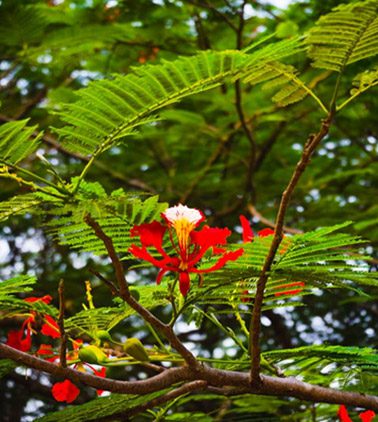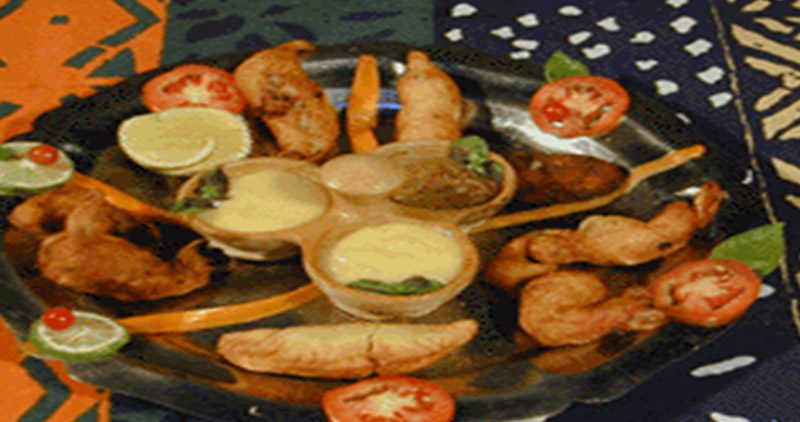- Home
- God's Canvass & Culture
- Christianity in Cote d’Ivoir ...


The Republic of Cote d’Ivoire is located in Southern coast of West Africa. It borders Guinea-Conakry to the Northwest, Liberia to the West, Mali to the Northwest, Burkina Faso to the Northeast, Ghana to the East, and the Gulf of Guinea in the Atlantic Ocean to the South. The capital is Yamoussoukro, while the largest city and economic centre is the port city of Abidjan. The official language is French, with about 60 indigenous spoken languages. Cote d’Ivoire has a human population of 29,344,847, and several ethnic groups, including Akan, 28.9%; Voltaic or Gur, 16.1%; Northern Mande, 14.5%; Krou, 8.5%; Southern Mande, 6.9%; foreign elements, including European and Lebanese, 24.2%, Unspecified, 0.9%. Islam is the leading faith at 42% of the population. Others are Atheism, 19.1%; Roman Catholicism, 17.2%; Evangelical Christianity, 11.8%; other Christian denominations, including Methodist Church 4.9%; traditional African religion, 3.6%; other faiths, 0.5%.
Modern History
Cote d’Ivoire was a French colony from 1842 to 1960 when it gained its independence. Before the first military coup of 1999, the country was a model of stability and sound economic growth. The consequences of military coup were unstable economy and the subsequent civil war, which split the country into two halves, the Muslim North and Christian/animist south. Peacekeeping talks brought the fighting to an end, but the country remained divided. Alassane Ouattara has been in power since 2010. In 2015, he won second five-year term with nearly 84% of the vote in an election described as credible by American observers. His re-election in 2020 was more controversial, with the opposition boycotting the poll in protest against his unconstitutional third term in office.
God’s Canvass
Cote d’Ivoire has six terrestrial ecoregions, namely, Eastern Guinean forests, Guinean montane forests, Western Guinean lowland forests, Guinean forest-savannah mosaic, West Sudanian savannah and Guinean mangroves. Around 64.8% of the country’s landmass is for agriculture, though only 9.1% of it is arable. Water pollution is one of the biggest challenges facing Cote d’Ivoire. The country has rich diversity of fauna and flora as shown below.
Fauna
There are over 400 species of mammals, 700 species of birds, and numerous reptiles in the country. Some of the animal species are presented below.





Flora
Over 4,700 species of plants have been identified in Cote d’Ivoire. In particular, its rainforests are home to a variety of tree species, including African mahogany, ebony, and teak. The understorey of the forests is characterised by dense growth of shrubs and smaller trees. Some of the plant species are shown below.




Beaches


Culture
The culture of the country is layered and colourful, thanks to its geographical location, collection of ethnic groups and years under French occupation. It has over 60 indigenous tribes and even more sub clusters, all with their distinct identities and traditions.Different regions of the country have their unique music, art, festivals, and languages. Music is also a big part of life in Cote d’Ivoire. While each of the country’s ethnic groups has its own take on traditions, some rhythms and melodies are universal.
Traditional Attire
Ivoirians wear both traditional and Western clothes. In cities and towns, most of them wear Western attire – pants or blue jeans and shirts. However, most women adorn the traditional brightly coloured dresses known as ‘pagnes’ with matching head scarves. Traditional clothing is most common in rural areas. Many Ivoirian men have long beautiful robes for ceremonial occasions. Some of the popular traditional wears are presented below.





Cuisine
Ivoirian cuisine takes inspiration from neighbouring West African nations; and most dishes use tubers and grains. Food is often served with the popular side dish of ‘attieke, or grated cassava. Another popular dish is ‘maquis’, a form of braised chicken or fish smothered in tomatoes and onions, often served with attieke or kedjenou, which is chicken with mild sauce and vegetables. Some popular dishes in the country are presented below.





Status of Christianity in Cote d’Ivoire
Although the country has a significant Christian population, the influence of ancestral worship and other forms of witchcraft is very strong. There is also a compelling need to share the gospel of Christ within the Muslim population, as well as some Christian denominations that do not believe in salvation by faith in the finished work of Jesus Christ. In the light of the foregoing, believers everywhere should intercede for unsaved souls in the country in earnest, because the salvation of these individuals is the heart of the gospel of Jesus Christ.
Prayer Points
- Present all Ivoirians before the Father and ask Him to reveal Himself to them.
- Pray that He would pour out His Spirit upon all flesh in the country as He promised in Joel 2:28.
- Ask the Father to remove the blindfold of satan from the heart and mind of all unsaved people in the country, and unstopped their ears to enable them hear the truth of the gospel.
- Pray that God would break the hold of all demonic principalities and powers operating in the country from the people, and uproot them from the land.
- Ask the Father to send workers into His harvest in Cote d’Ivoire.
- Pray that God would sanctify all Christian believers with His word and fill them with His Spirit for the ministry of the word and prayer.
- Ask the Father to destroy all platforms and infrastructure of darkness that are being used by the devil to deceive gullible people in the country under the guise of religion.
- Pray that God would open doors for Christian believers to preach the gospel in areas dominated by Muslims and traditionalists.
- Pray that the Father would protect both local and foreign missionaries working in the country.
- Ask the Father to shut down all Christian denominations in the country being used as channels for the propagation of demonic doctrines.
Intercession Checklist
Use the political map of Cote d’Ivoire provided in the text to select a town, city or region for focused prayer. Present the chosen geographical space to the Father and tell Him that you are claiming its people for Christ as His ambassador (2 Corinthians 5:20). Remind the Father that He had instructed the Messiah to ask of Him and that He would give Him the heathen for His inheritance and the uttermost part of the earth for His possession (Psalm 2:8).
**** Some materials sourced from Ivory Coast Country Profile, https://www.bbc.com; A Very Short History of Cote d’Ivoire, https://wwwthoughtco.com; Ivory Coast, https://en.m.wikipedia.org; Ivory Coast’s Biodiversity: A Rich and Diverse Ecosystem, https://green.earth, Cote d’Ivoire – History and Culture, https://www.iexplore.com; Ivoirians, https://www.everyculture.com.
